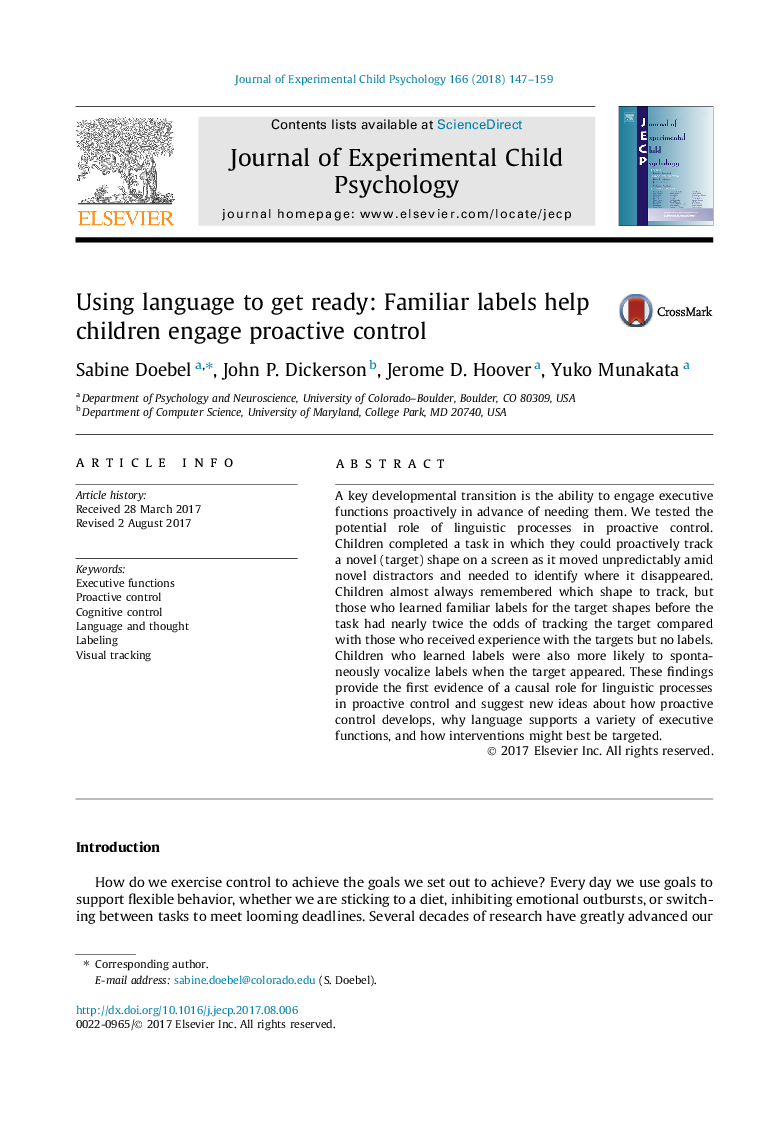| Article ID | Journal | Published Year | Pages | File Type |
|---|---|---|---|---|
| 5039861 | Journal of Experimental Child Psychology | 2018 | 13 Pages |
â¢We tested the influence of language on the engagement of proactive control.â¢We familiarized children with novel shapes that they later had to track in a proactive control task.â¢Those who learned familiar labels for the shapes were better able to track them.â¢Children who learned labels for the shapes were more likely to spontaneously label them when they appeared.â¢Findings are consistent with self-directed speech supporting the engagement of proactive control.
A key developmental transition is the ability to engage executive functions proactively in advance of needing them. We tested the potential role of linguistic processes in proactive control. Children completed a task in which they could proactively track a novel (target) shape on a screen as it moved unpredictably amid novel distractors and needed to identify where it disappeared. Children almost always remembered which shape to track, but those who learned familiar labels for the target shapes before the task had nearly twice the odds of tracking the target compared with those who received experience with the targets but no labels. Children who learned labels were also more likely to spontaneously vocalize labels when the target appeared. These findings provide the first evidence of a causal role for linguistic processes in proactive control and suggest new ideas about how proactive control develops, why language supports a variety of executive functions, and how interventions might best be targeted.
